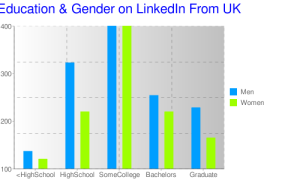Network our way through the recession?
There is a funny video about Linkedin going the rounds that I found from @jackiecameron1.
Unemployed people sign up to Linkedin in a desert of jobs. Everyone is networked, but to each other, to no one has a job.
What use is networking if there are no employers in the group?
Networking is not hitching a ride!
What is very apparent in the rather delightful (and accurate) spoof is that no one is doing anything. Everyone is trying to hitch ride on everyone else!
Who in that network is trying to make anything happen? Who is inviting other people to help, even for free?
Networking out of a desert of jobs
To take the metaphor of the desert further, if anyone got the group organized to look for water, they might find some!
Why doesn’t anyone start some useful activity?
The simple answer is that no one there trusts anyone else. If they did, they would invite them to do something!
How do we begin to organize that group?
Here are 7 steps for organizing a group who seem to be out of ideas, out of resources and who don’t know each other well.
A Show Confidence in Your People
#1 Begin!
#2 Be active.
Do something! Sit down and make a sandcastle! See who helps.
B Help Your People Gain Confidence in Each Other
#3 Change the sandcastle so that people are helping each other.
Move your position so that you are handing sand to the person building. When another person joins in, move to the the end of the line.
#4 Move the line slowly in the direction that seems most promising.
At the same time, get people to sing so that they become more aware that they are a group.
Keep your attention on the sandcastle by-the-way! People are only going to be bothered with the sand castle if you are!
C Work with People Who Trust the Group
#5 Position a reliable person at the end of the line while you start a new line.
Make sure the person at the end of a line knows to sing out if they see anything unusual on the horizon.
D Bring Information About Opportunities Into the Group
#6 When someone sees something unusual on the horizon, don’t create a stampede.
Move the whole bicycle wheel, by changing the direction that the sand moves. Move the sandcastle builder to the other end and reverse the direction of sand. In an orderly way, move the other spokes. Keep it playful!
E We Are All In This Together
#7 Continue and continue!
You might decide to abandon your group and go it alone. Yes, it might be slow moving the group along and it might feel as if the group is slowing you up. But aren’t your chances of finding water higher in an organized group looking out for each other?
It is easier to think straight when things are really bad
It sometimes feel that deserts are too much to cope with. I am also going to tell you that deserts are better than abandoned farm land. You are lucky. Yes, you are!
Let’s imagine, you simply find yourself in a abandoned but essentially sound farm. You don’t start building a useless sandcastle. You do something useful. You start to plough the land and plant seeds. The difficulty is that you have now fixed your group to that field. You will be unable to move slowly across the horizon to a better place. In modern parlance, your solution is not scalable!
That’s why I like the idea of deserts. We are willing to abandon sandcastles and rebuild them elsewhere.
When you chose your seed project, build something, anything, where we can see results and where we can all help! Keep the projects short and sweet so that people can see results and move them as we spot other things on the horizon.
Experiments in extreme living
What I want you to do is to build something with the resources under your feet. And invite someone else to join in.
When the person joins in, give them a prime spot and support them. Invite another person. Keep building.
That’s is the challenge. That is the task!
Leave a Comment


